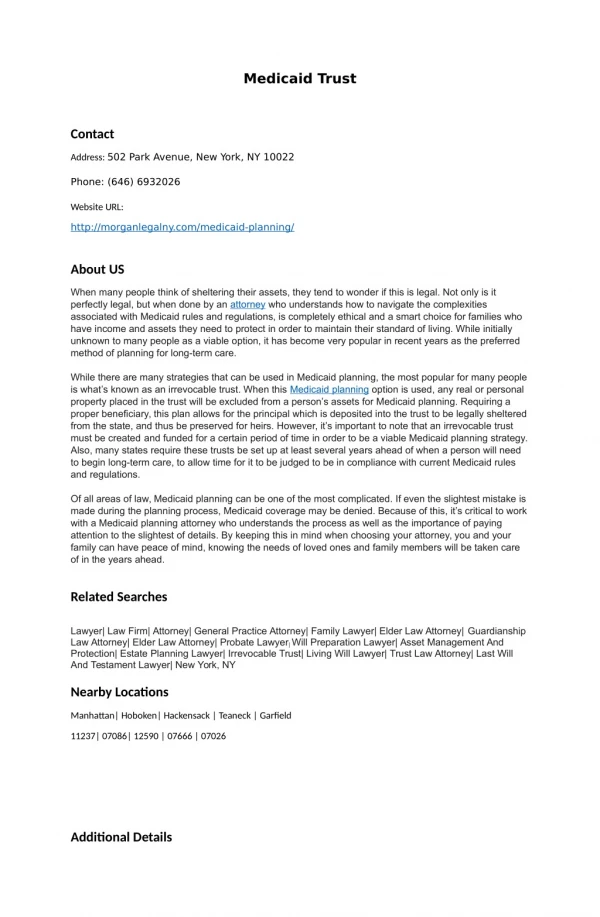Medicaid Trust
When many people think of sheltering their assets, they tend to wonder if this is legal. Not only is it perfectly legal, but when done by an attorney who understands how to navigate the complexities associated with Medicaid rules and regulations, is completely ethical and a smart choice for families who have income and assets they need to protect in order to maintain their standard of living. While initially unknown to many people as a viable option, it has become very popular in recent years as the preferred method of planning for long-term care. While there are many strategies that can be used in Medicaid planning, the most popular for many people is whatu2019s known as an irrevocable trust. When this Medicaid planning option is used, any real or personal property placed in the trust will be excluded from a personu2019s assets for Medicaid planning. Requiring a proper beneficiary, this plan allows for the principal which is deposited into the trust to be legally sheltered from the state, and thus be preserved for heirs. However, itu2019s important to note that an irrevocable trust must be created and funded for a certain period of time in order to be a viable Medicaid planning strategy. Also, many states require these trusts be set up at least several years ahead of when a person will need to begin long-term care, to allow time for it to be judged to be in compliance with current Medicaid rules and regulations. Of all areas of law, Medicaid planning can be one of the most complicated. If even the slightest mistake is made during the planning process, Medicaid coverage may be denied. Because of this, itu2019s critical to work with a Medicaid planning attorney who understands the process as well as the importance of paying attention to the slightest of details. By keeping this in mind when choosing your attorney, you and your family can have peace of mind, knowing the needs of loved ones and family members will be taken care of in the years ahead.
★
★
★
★
★
183 views • 2 slides

